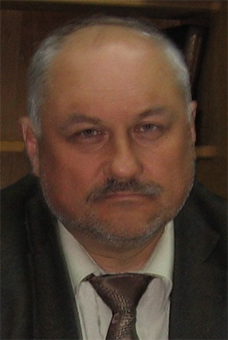Prof. Sergey Zheltov
RAS Member State Research Institute of Aviation Systems (GosNIIAS), Moscow, RussiaKeynote: Prospects of Artificial Intelligence in Aviation
The keynote is focused on analysis of the main problems and trends in the intellectualization of aviation systems. The main attention is paid to the tasks of situational awareness of the crew, intellectual processing of heterogeneous information to provide an accurate, reliable and holistic image of the environment, recognition and prediction of dangerous combinations of flight factors. The technologies of improved, synthetic and combined vision, the problems of the human-machine interface optimization, the problems of intellectual analysis of the technical condition of aircraft are considered. Various control problems arising in aviation systems, including trajectory control, technical condition control, reconfiguration of the computing process are considered.
BIO: Sergey Yuryevich Zheltov (born April 26, 1956, Moscow) is a specialist in control processes, information processing in complex control systems, Doctor of Technical Sciences, Member of RAS, Deputy General Director for Science of the State Research Institute of Aviation Systems (GosNIIAS), Honorary Mechanical Engineer of the Russian Federation, Honorary Aircraft Builder of the Russian Federation, Honored Scientist of the Russian Federation.
Prof. Vladimir Arlazarov
Federal Research Center Computer Science and Control of the Russian Academy of Sciences, Moscow, Russia CEO Smart EnginesKeynote: Current Threats to the Security of Neural Network Models and Ways to Prevent Them
Over the past two decades, artificial neural networks have become a key technology for solving problems of data recognition, prediction and analysis. To date, deep neural network architectures have been created that are used everywhere and allow you to perform printed and handwritten character recognition, object localization, scene segmentation, and even solve content creation tasks. Such models contain tens of millions of coefficients and require significant training costs, both in terms of energy and equipment, and in terms of preparing large amounts of data for training and testing. For intensive execution of such models, special equipment may also be required. On the one hand, specialized tensor and GPU processors are available to solve these problems, as well as ready-made datasets and even models with pre-trained coefficients. On the other hand, the use of such materials and equipment without prior verification can lead to disastrous consequences: intentional evasion of recognition, impact on the operation of automatic systems, denial of service, theft of confidential or commercial information. In addition, even artificial neural network models trained from scratch can be unstable to small fluctuations in input parameters, which makes their use unsafe. This report is devoted to an overview of modern neural network architectures and an analysis of the main classes of neural network vulnerabilities.
Prof. Yuri V Mitrishkin
M.V. Lomonosov Moscow State University, Faculty of Physics, Moscow, RussiaV.A. Trapeznikov Institute of Control Sciences of Russian Academy of Sciences, Moscow, Russia
Keynote: Hierarchical cascade control systems for time-dependent dynamical plants as applied to magnetic plasma control in D-shaped tokamaks
The systems of poloidal field coils for in D-shaped tokamaks ITER, EAST, DEMO, T-15MD, TRT, IGNITOR, Alcator C-Mod, ASDEX Upgrade, DTT, SPARC, ST-1.6, Globus-M2 are analyzed for their efficiency in the application of plasma position, current, and shape control systems in these tokamaks. The problem of magnetic plasma control in tokamaks is posed. A methodology for designing hierarchical cascade systems of magnetic plasma control in D-shaped tokamaks has been developed on the base of generalization of existing plasma magnetic control systems. The hierarchical levels are as follows: multivariable robust cascade control level, adaptation level, artificial intelligence level, decision-making level. To implement these systems in the practice of physical experiment, it is proposed to use digital twins, the basis of which is a real-time digital testbed created by Lomonosov Moscow State University and Trapeznikov Institute of Control Sciences of Russian Academy of Sciences.
BIO: Yuri V Mitrishkin (D.Sc., Professor) graduated from the Kuibyshev Polytechnic Institute n.a. V.V. Kuibyshev in 1970 and the Lomonosov Moscow State University in 1982. Author of more than 200 publications. Professor of Faculty of Physics of M.V. Lomonosov Moscow State University (Moscow, Russia) and V.A. Trapeznikov Institute of Control Sciences of Russian Academy of Sciences (Moscow, Russia).



